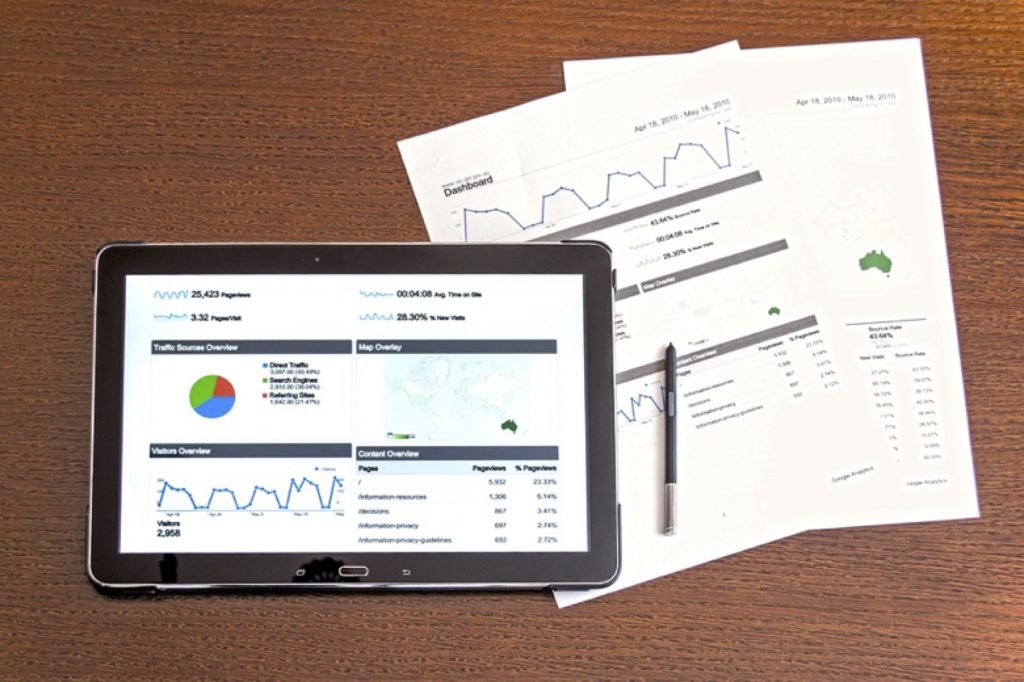HOW TO HANDLE DATA EFFICIENTLY TO BOOST BUSINESS GROWTH
Out of the many resources a business needs to function effectively, data is the most significant. Information is what drives business data analytics. Without adequate evaluation of data, strategic decision making becomes a flawed process. Businesses utilize a plethora of information to assess markets, competitors, customer preferences, organizational performance, etc.

According to a recent survey conducted by Deloitte, 49% of the surveyed population indicated that data analytics helped them make better business decisions. On the other hand, 96% believed that data analytics would become more significant for their business in the next three years. A fundamental part of data analytics is information handling and management. For your business to make the best use of available data, you need to handle data first effectively.
Here we discuss how you need to handle data efficiently to enhance the organizational functions and boost business growth:
-
Enhance Customer Experience:
Reviewing the data produced by your sales department regarding the customers can give you great insights. You can better understand what drives your customers and their repeat purchases. Knowing the consumers that are more likely to become loyal buyers in the future can help you in directing your marketing investments appropriately.
Through data analysis, you can pinpoint your repeat purchasers, which further helps build customer relationships. The consumers are a vital stakeholder in the business. Focusing on meeting their requirements and satisfaction levels is fundamental, and this is where data analytics will help you manifold.
-
Manage Product Portfolios:
Businesses often own several different products that they sell to other targeted consumers. Each product has a diverse customer base and demand trends. Not every product aims at the entire market. Data analysis helps keep a detailed product portfolio whereby you can assess your products on several different metrics. For example, you can ascertain which products earn you the most revenue, which products generate the most goodwill, the seasonal demands of the products, etc.
Such information is vital in making production and marketing decisions. You know the trends in the industry. Hence, you can utilize this data to manage your products. You will know which goods to promote and which products to give the most attention. It is of great use in increasing your sales figure. A professional with a business analytics degree
can immensely help your business create a detailed portfolio to manage your products.
-
Measure The Efficacy Of Advertising And Promotion:
Marketing takes up a whole chunk of cash resources in a business. The efficacy of advertising and promotional campaigns must be judged and measured. Information relating to the response of the consumers can help build more effective promotional techniques. Online marketing
is a more measurable mode of promotion. There are numerous tools such as Google Analytics, Hootsuite, etc. to assess potential customers’ responses to the advertising material online. It can help you polish up your campaign in alignment with the interests of your viewers.
-
Evaluate Your Service Skills:
Your product can be mind-blowing, but it is of no use if your service levels are appalling. Customers interact with you on the level of service you provide. They will judge you for how helpful, polite, and accommodating your customer service is.
Producing data incorporating consumer responses and reviewing customer feedback to your service levels will aid in identifying loopholes and addressing them. The better your customer service is, the increased customer goodwill you create.
-
Identify Costing Loopholes:
All businesses function with one most essential aim: minimizing costs and maximizing revenue. It is the exact recipe for increased profits. Cost management is imperative in reducing costs. If you will not know your costs, how do you expect to cut down the unreasonable expenses?
Costing details and information will help you in assessing your costing structures and identifying gaps if any. Data is also essential when creating costing budgets. These budgets serve as a benchmark for controlling expenses and anything over and above. Businesses own limited resources. For a business to flourish and grow, putting these limited resources to the most efficient use is necessary.
Conclusion:
Data management and analysis are crucial roles in business administration. Without the use of data and information, decision making is nearly impossible. Each function of an organization needs statistics to operate adequately. It is also through data management that a business can aim towards business growth and expansion. Using an apt data management structure, organizations can boost business growth and improve their long-term performance.

